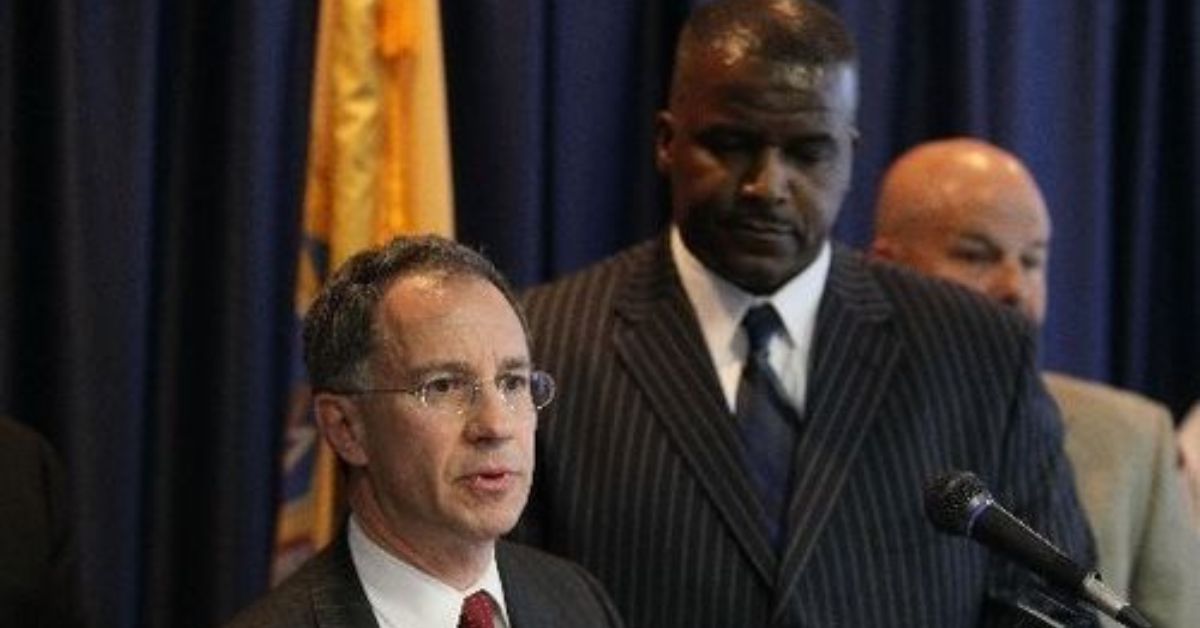NEWARK, New Jersey—U.S. Attorney Paul J. Fishman said today that the former owner and CEO of Capitol Investments USA, Inc., which was supposed to be in the wholesale grocery distribution business, was charged in a criminal complaint with running a $880 million Ponzi scam.
Nevin Shapiro, 41, of Miami Beach, Florida, turned himself in to special agents of the FBI and the Internal Revenue Service (IRS) in Newark, New Jersey, this morning. Shapiro will have an initial appearance and bail hearing this afternoon in Newark before U.S. Magistrate Judge Madeline Cox Arleo.

The lawsuit that was filed in Newark federal court says:
From January 2005 to November 2009, Shapiro used Capitol to find investors in New Jersey and all over the United States. He told them that he would use their money to fund his wholesale grocery delivery business. To get those investors, Shapiro told others to make and show the investors fake papers that lied about how profitable Capitol was. These documents included financial statements and profit and loss statements that falsely said Capitol’s wholesale grocery business made tens of millions of dollars in sales every year. They also included Shapiro’s and Capitol’s personal and business tax returns that falsely showed these sales, as well as a number of invoices that falsely showed transactions between Capitol and other wholesale grocery companies.
Also, Check: PEOPLE: Former Miss USAcharged with DUI
Because of these requests, more than 60 donors gave Shapiro and Capitol more than $880 million during this time. So far, the probe has shown that Shapiro made at least $80 million worth of investors lose money.
Most of the time, Shapiro and people working for him gave clients promissory notes that said how much they had invested in Capitol and when they would get their money back, which could be anywhere from a few days to a year later. Shapiro and Capitol offered investors interest rates that ranged from 10% to 26% per year.
In truth, Capitol did not have a grocery wholesale business during the time this complaint is about. In fact, almost no business was sold by Capitol. Shapiro used money from new investors to pay capital and interest to investors he already had and to pay for his own lavish lifestyle.

Shapiro stole about $35 million from investors and used it for his own purposes, like paying off millions of dollars in bills from illegally betting on sports events. Using money from investors, he also spent more than $400,000 on floor seats to watch the professional basketball team Miami Heat; about $26,000 per month on mortgage payments for his Miami Beach home, which was recently valued at about $5.3 million; about $7,250 per month on payments for a $1.5 million Riviera yacht; and about $4,700 per month to lease a Mercedes-Benz.
Shapiro also used stolen money to buy a pair of handcuffs with diamonds on them and give them as a gift to a famous professional player. He also gave $150,000 to a local university’s sports program in the Miami area. Because the suspect gave the university a 10-year gift, the Nevin Shapiro Student-Athlete Lounge at the university is named after him.
Must Check: USACharged: The Legal Process in Federal Criminal Cases
U.S. Attorney Fishman said, “Nevin Shapiro is accused of using fake documents and false promises to trick investors.” He used tens of millions of dollars of their money to pay off gambling bills, buy expensive gifts, and live a lavish lifestyle that was built on a house of cards.
FBI Special Agent in Charge Michael B. Ward said, “This case is a great example of what happens when greed gets out of hand. Mr. Shapiro is said to have taken advantage of people who were looking for a safe place to make the most of their investments. He did this to get the money and lifestyle he couldn’t get on his own. Instead, their lives are now ruined for good.”
“Scammers, con artists, and swindlers will do and say anything to get you to buy into their scheme,” said William P. Offord, Special Agent in Charge, IRS-Criminal Investigation. “Remember the old saying, ‘If it sounds too good to be true, it probably is,'”
Shapiro is accused of one count of securities fraud and one count of money laundering in the criminal lawsuit. On the securities fraud charge, he could spend up to 20 years in jail and pay up to $5 million in fines. On the money laundering charge, he could spend up to 10 years in jail and pay a fine of up to $250,000 or twice the amount he made or lost from the crime.
After a conviction, the judge in charge of the case would look at the advisory U.S. Sentencing Guidelines to figure out the actual sentence. These guidelines give appropriate sentencing ranges that take into account the severity and nature of the crime, the defendant’s criminal history, if any, and other factors. The judge, on the other hand, doesn’t have to follow these rules when making a sentence. In the government system, parole has been done away with. People who are sentenced to jail time must serve almost all of that time.
U.S. Attorney Fishman said that the investigation that led to today’s complaint was done by special agents of the FBI, led by Special Agent in Charge Michael B. Ward, and special agents of the IRS Criminal Investigation Division, led by Special Agent in Charge William P. Offord. Fishman also thanked Eric Bustillo, who was in charge of the Miami Regional Office of the Securities and Exchange Commission, for their help.
Assistant U.S. Attorneys Justin W. Arnold and Jacob T. Elberg of the Criminal Division in Newark are working for the government.
This case was made with the help of the Financial Fraud Enforcement Task Force, which is led by President Barack Obama. President Obama set up the Financial Fraud Enforcement Task Force to examine and prosecute financial crimes in a way that is aggressive, coordinated, and proactive. The task force is made up of people from a wide range of federal agencies, regulatory authorities, inspectors general, and state and local law enforcement. When they work together, they bring a strong set of criminal and civil enforcement resources to bear. The task force is working to improve how the federal executive branch and state and local partners investigate and prosecute major financial crimes, make sure that those who commit financial crimes get fair and effective punishments, stop discrimination in the lending and financial markets, and help victims of financial crimes get their money back.
The claims against Shapiro in the complaint are just that—accusations. The defendant is innocent until and unless he or she is proven guilty.
Check back with Usacharged.com and our social media accounts (Twitter, Facebook, Pinterest, and Instagram.) for further information.




